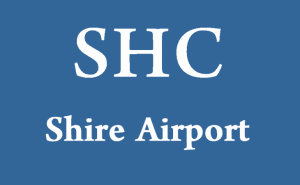Blog Archives
Q
"QCOS" could stand for "Quality Control and Optimization System." In this context, QCOS represents a comprehensive software or framework designed to streamline and enhance quality control processes across various industries. QCOS integrates advanced data analytics, machine learning algorithms, and automation technologies to monitor, analyze, and optimize quality control activities throughout the production or service delivery lifecycle. The system facilitates real-time monitoring of key quality metrics, identification of deviations or defects, root cause analysis, and decision-making support to ensure that products or services meet or exceed customer expectations and regulatory requirements. QCOS may include modules for process monitoring, quality inspection, defect tracking, corrective and preventive actions, supplier quality management, and performance analytics. By providing visibility into quality performance across the organization, QCOS enables stakeholders to identify opportunities for process improvement, reduce waste and rework, enhance productivity and efficiency, and drive continuous quality improvement initiatives. Additionally, QCOS helps organizations mitigate risks, protect brand reputation, and maintain compliance with industry standards and regulations, ultimately contributing to higher customer satisfaction, loyalty, and business success.
"QROTI" could stand for "Quality of Restaurant Operations and Training Institute." In this context, QROTI represents an organization or institution dedicated to improving the quality of restaurant operations and training in the hospitality industry. QROTI focuses on providing comprehensive training programs, resources, and support services to restaurant owners, managers, staff, and aspiring professionals to enhance their skills, knowledge, and efficiency in running successful restaurant businesses. The institute may offer a wide range of training modules covering topics such as food safety and hygiene, customer service excellence, menu development, culinary techniques, inventory management, financial planning, marketing strategies, and staff leadership and development. QROTI may also provide consulting services, certification programs, and networking opportunities to help restaurants meet industry standards, comply with regulations, and stay competitive in a rapidly evolving market. By promoting best practices, professional development, and continuous improvement in restaurant operations, QROTI plays a vital role in ensuring the delivery of high-quality dining experiences and fostering customer satisfaction and loyalty within the hospitality sector.
"QCTV" could stand for "Quality Control Television." In this context, QCTV represents a television network or channel dedicated to programming focused on quality control processes, standards, and best practices across various industries. QCTV programming may include educational content, documentaries, interviews, and demonstrations aimed at highlighting the importance of quality control in manufacturing, healthcare, food production, construction, technology, and other sectors. The network may feature segments on quality management systems, regulatory compliance, product testing and certification, continuous improvement methodologies, and case studies showcasing successful quality control initiatives. QCTV serves as a valuable resource for professionals, practitioners, students, and consumers interested in learning about quality assurance and quality management principles and their impact on product safety, reliability, and customer satisfaction. By raising awareness and promoting knowledge sharing in the field of quality control, QCTV contributes to fostering a culture of excellence, innovation, and accountability in organizations worldwide.
"QUU" doesn't have a widely recognized or standardized meaning, so I'll provide a hypothetical expansion. Let's say "QUU" stands for "Quality Urban Upgrading." In this context, QUU represents a comprehensive approach to improving the quality of urban living environments, particularly in informal settlements and marginalized communities within urban areas. This initiative involves a range of interventions aimed at upgrading infrastructure, services, and living conditions to enhance the well-being and resilience of urban residents. QUU may include investments in basic infrastructure such as water supply, sanitation, electricity, and roads, as well as initiatives to improve housing quality, access to healthcare and education, and livelihood opportunities. The goal of QUU is not only to address immediate needs and deficiencies but also to promote long-term sustainability, social inclusion, and economic development in urban areas. By prioritizing the needs of vulnerable and marginalized populations, QUU contributes to creating more equitable, livable, and resilient cities that offer opportunities for all residents to thrive and participate fully in urban life.
"QDPIF" stands for "Quality Data Processing and Information Framework." It represents a systematic approach or framework for ensuring the accuracy, reliability, and usability of data and information within an organization or system. QDPIF encompasses a set of principles, processes, and tools designed to facilitate the collection, storage, analysis, interpretation, and dissemination of data in a manner that meets the organization's needs and objectives. This framework typically involves establishing data quality standards and protocols, implementing data governance mechanisms, conducting data validation and verification procedures, and employing data management technologies and systems to ensure the integrity and security of information assets. QDPIF also emphasizes the importance of data transparency, accessibility, and usability, enabling stakeholders to make informed decisions and derive meaningful insights from the data. By promoting a culture of data quality and information management excellence, QDPIF helps organizations leverage data as a strategic asset, drive innovation, improve performance, and achieve their goals more effectively and efficiently. Moreover, QDPIF plays a crucial role in enhancing organizational resilience, enabling timely and evidence-based decision-making, and fostering accountability, trust, and confidence in the integrity of data and information systems.
- Page 1
- Page 2
- Page 3
- Next Page »







